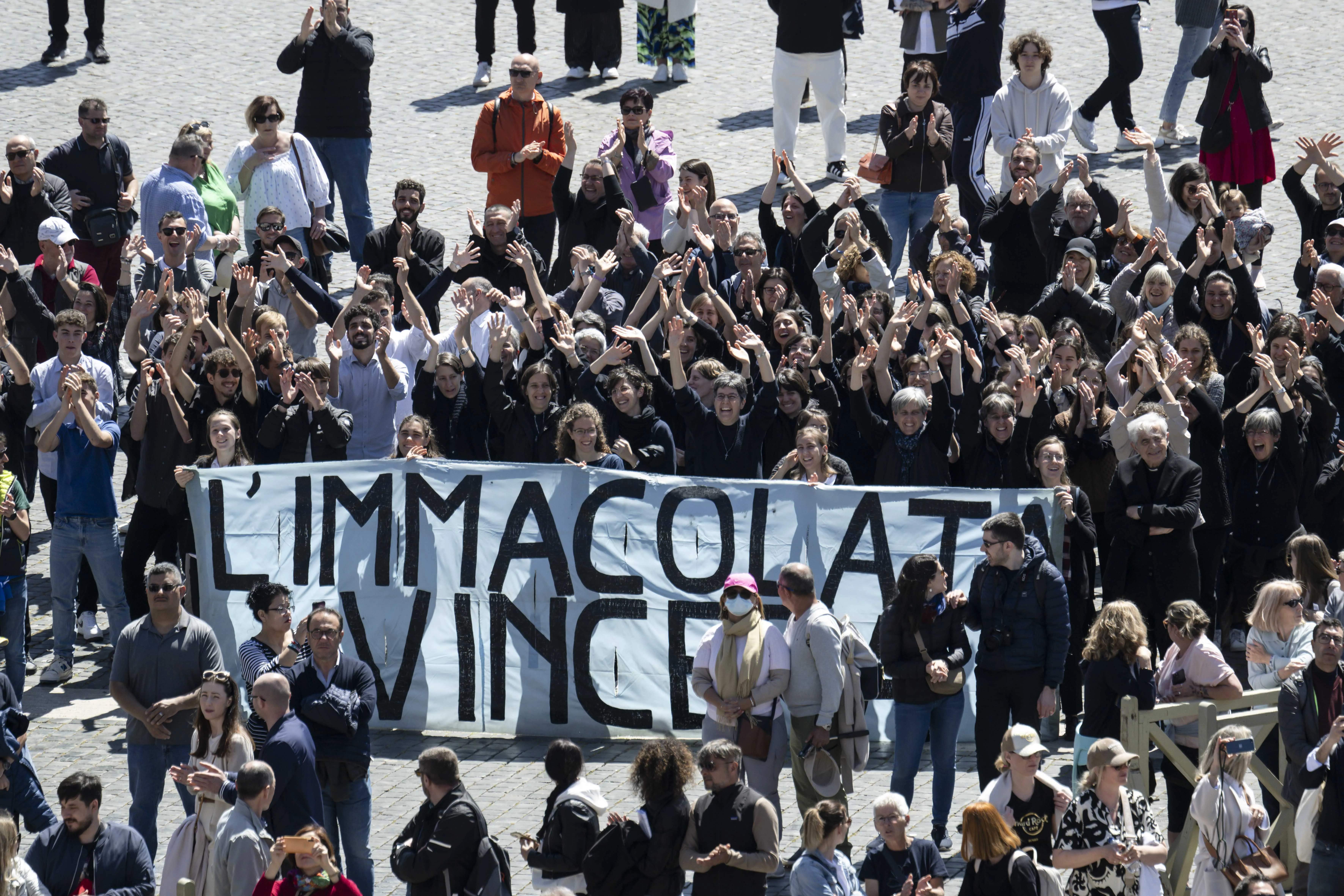 Pope Francis waves to pilgrims gathered in St. Peter's Square on April 21, 2024, at the Vatican. / Credit: Vatican Media
Pope Francis waves to pilgrims gathered in St. Peter's Square on April 21, 2024, at the Vatican. / Credit: Vatican Media
Rome Newsroom, Apr 21, 2024 / 09:36 am (CNA).
Pope Francis reflected on the image of Christ as the Good Shepherd during his Regina Caeli address Sunday, noting that it is a role characterized by his sacrificial love.
"Jesus explains that he is not a hired man who cares nothing for the sheep but a man who knows them," the pope said on April 21, the fourth Sunday of Easter, which is traditionally known as Good Shepherd Sunday because it is the theme of the day's Gospel. "It is true, he knows us, he calls us by our name and, when we are lost, he looks for us until he finds us."
Pope Francis explained that Christ's role as a shepherd introduced a new logic, observing that he is not acting as a guide or "the head of the flock" but is instead "living in symbiosis" with his people.
"This is what the Lord wants to tell us with the image of the Good Shepherd: not only that he is the guide, the head of the flock, but above all that he thinks of each of us as the love of his life," the pope said to pilgrims gathered in St. Peter's Square.

Pope Francis emphasized the sacrificial component of the role of the shepherd, observing that Jesus "is not just a good shepherd who shares the life of the flock" but "is the Good Shepherd who has sacrificed his life for us and has given us his Spirit through his resurrection."
The pope asked the faithful to meditate upon this sacrificial dimension of the shepherd so that we bear in mind that "for Christ, I am important, irreplaceable, worth the infinite price of his life."
"It is not just a way of speaking," the pope added, "he truly gave his life for me, he died and rose again for me because he loves me and he finds in me a beauty that I often do not see myself."
The pope also cautioned against the temptation to measure our value based on "trivial things," such as "the goals we achieve" or "on whether we succeed in the eyes of the world, on the judgments of others."
"In order to find ourselves, the first thing to do is to place ourselves in his presence, allowing ourselves to be welcomed and lifted up by the loving arms of our Good Shepherd," the pope said.
The Holy Father also drew attention to Sunday's celebration of the World Day of Prayer for Vocations, which he observed as an "opportunity to rediscover the Church as a community characterized by a polyphony of charisms and vocations at the service of the Gospel."
Following the recitation of the Regina Caeli, the pope renewed his appeal for peace in the Middle East, imploring leaders not to "give in to the logic of vengeance and war" but instead to let "the paths of dialogue and diplomacy prevail, which can do a lot."
"I pray every day for peace in Palestine and Israel and I hope that those two peoples can soon stop suffering," he said.














